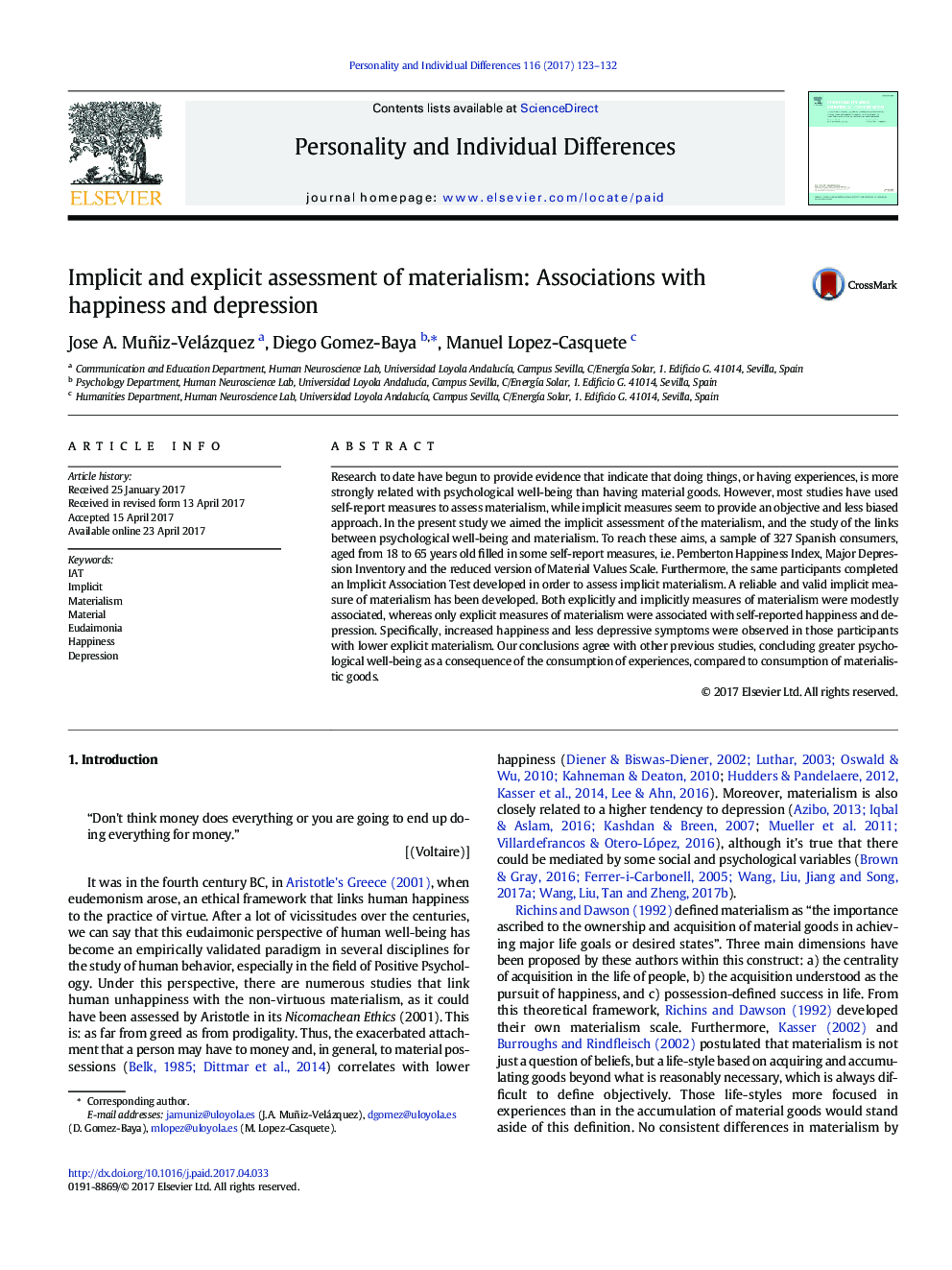| کد مقاله | کد نشریه | سال انتشار | مقاله انگلیسی | نسخه تمام متن |
|---|---|---|---|---|
| 5035594 | 1472002 | 2017 | 10 صفحه PDF | دانلود رایگان |
Implicit association test is a valid paradigm to assess implicit materialism.Implicit and explicit materialism are positively related, although modestly.Explicit materialism is negatively associated with well-being.Greater explicit materialism is related to more depressive symptoms.
Research to date have begun to provide evidence that indicate that doing things, or having experiences, is more strongly related with psychological well-being than having material goods. However, most studies have used self-report measures to assess materialism, while implicit measures seem to provide an objective and less biased approach. In the present study we aimed the implicit assessment of the materialism, and the study of the links between psychological well-being and materialism. To reach these aims, a sample of 327 Spanish consumers, aged from 18 to 65Â years old filled in some self-report measures, i.e. Pemberton Happiness Index, Major Depression Inventory and the reduced version of Material Values Scale. Furthermore, the same participants completed an Implicit Association Test developed in order to assess implicit materialism. A reliable and valid implicit measure of materialism has been developed. Both explicitly and implicitly measures of materialism were modestly associated, whereas only explicit measures of materialism were associated with self-reported happiness and depression. Specifically, increased happiness and less depressive symptoms were observed in those participants with lower explicit materialism. Our conclusions agree with other previous studies, concluding greater psychological well-being as a consequence of the consumption of experiences, compared to consumption of materialistic goods.
Journal: Personality and Individual Differences - Volume 116, 1 October 2017, Pages 123-132
